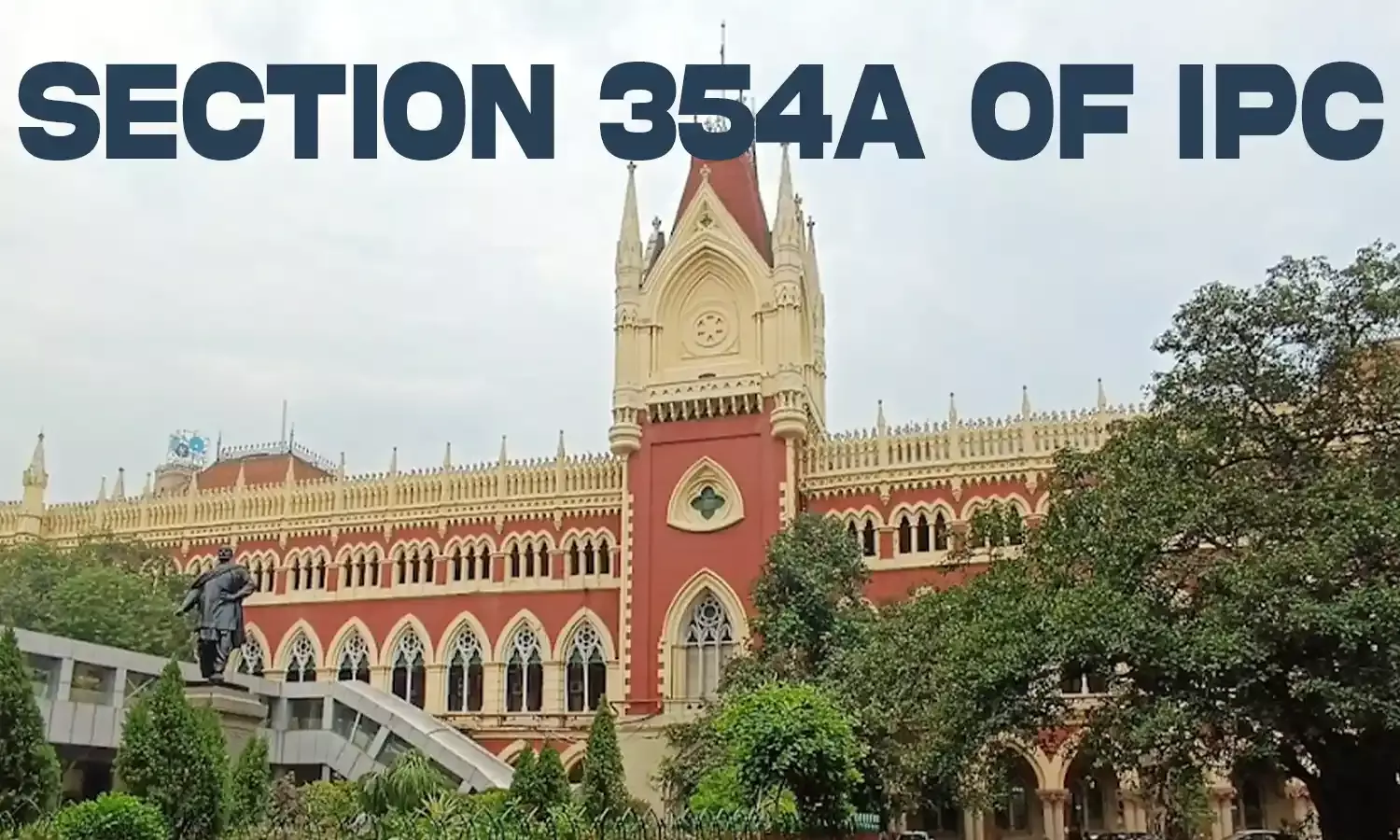"Sexual Harassment" Is Gender Specific Offence; Only Males Can Be Prosecuted U/S 354A IPC: Calcutta HC
The Calcutta High Court held that a female cannot be an accused under Section 354A of the Indian Penal Code (IPC) as it is a gender specific offence and only male can be prosecuted for the offence of Sexual Harassment.
The Court held thus in a criminal revisional application filed by a woman seeking quashing of proceedings under Sections 354A, 506, and 34 of IPC pending before the Additional Chief Judicial Magistrate.
A Single Bench of Justice Ajay Kumar Gupta observed, “… it can be safely accepted that a female cannot be an accused under Section 354A of the IPC as is evident from very terminology as used in the said enactment. This offence is gender specific and only a male can be prosecuted under this offence. A female accused will not be covered under the mischief of this Section as a result of the specific words “a man” used in the Section 354A sub-sections (1), (2) and (3) of the IPC. Accordingly, the allegation of an offence punishable under Section 354A of IPC is not applicable against the present petitioner.”
The Bench said that Section 354A IPC can only apply qua a male accused and the Section opens up with the term “a man”.
Advocate Ayan Bhattacharjee represented the petitioner while Advocates Madhusudan Sur and Dipankar Paramanick represented the opposite parties.
Brief Facts -
In 2018, the opposite party (complainant) lodged a written complaint against four accused persons including the petitioner alleging that the accused tried to torture the complainant’s mother. The accused i.e., the petitioner’s father allegedly came to her house and entered into the room of the complainant while she was changing her dress and at that time, the said accused person tried to molest her with ill motive. However, she succeeded to rescue herself and hence, a case was registered.
In the FIR, another allegation made against the petitioner was that she always instigated and tortured the complainant’s mother but no specific and particulars of alleged offences made against her. The petitioner’s contention was that without proper investigation, purportedly a chargesheet was filed against the accused persons including her though she was totally innocent. It was further contended that the said chargesheet was incongruous because Section 354A IPC cannot apply against a female accused.
The High Court in view of the above facts noted, “Section 10 of the IPC defines the word “man” denotes a male human being of any age: the word “woman” denotes a female human being of any age. … Earlier there was a Section 354 of the IPC. Under such section whoever assaults or uses criminal force to any woman, intending to outrage or knowing it to be likely that he will thereby outrage her modesty, shall be punished with imprisonment of either description for a term which shall not be less than one year but which may extend to five years, and shall also be liable to fine.”
The Court added that the essentials of the offence under Section 354 IPC are –
i. that the assault must be on a woman;
ii. that the accused must be used criminal force on her; and
iii. the criminal force must have been used on a woman intending thereby to outrage her modesty.
Furthermore, the Court emphasised, “The Section 354A itself is very clear, starts with a man in all sub-sections (1), (2) and (3). Accordingly, a woman cannot be said to have committed an offence under Section 354A of IPC. Therefore, the learned counsel for the petitioner has rightly submitted that present petitioner cannot be prosecuted for alleged commission of offence punishable under Section 354A of IPC.”
The Court enunciated that in interpreting the penal statute, a Court has to adopt a strict view thereof and the meaning of a penal provision cannot be extended or extrapolated by legal construction.
Accordingly, the High Court allowed the application and quashed the case against the petitioner.
Cause Title- Susmita Pandit v. State of West Bengal & Another
Appearance:
Petitioner: Advocates Ayan Bhattacharjee, Amitabrata Hait, and Arpit Choudhury.
Opposite Parties: Advocates Madhusudan Sur and Dipankar Paramanick.




